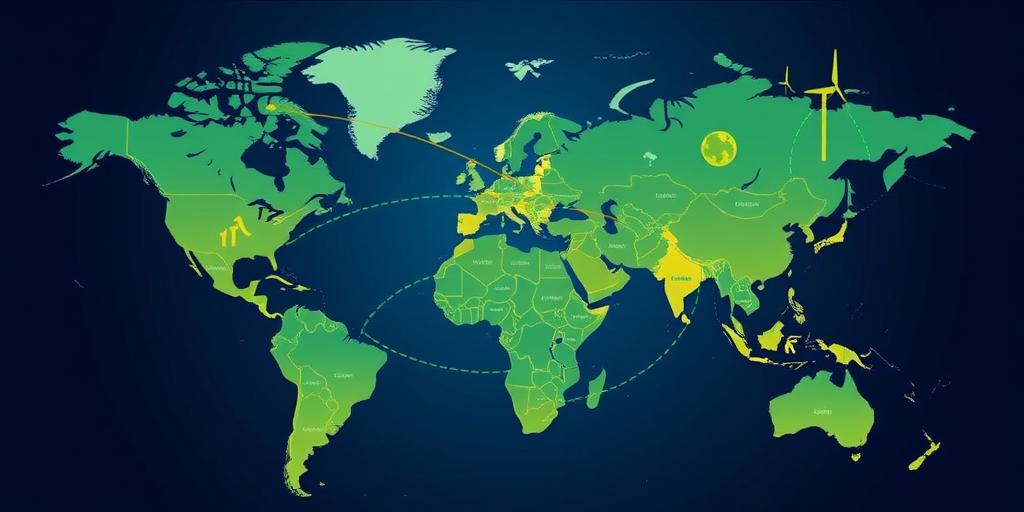The Geopolitics of Energy and Global Markets: A Complex Interplay
The relationship between energy and geopolitics is a complex and critical aspect of the modern global economy. Energy resources are not evenly distributed across the globe, leading to intricate dependencies and strategic rivalries among nations. This article will delve into the key dynamics shaping the geopolitics of energy and its profound impact on global markets.
The Uneven Distribution of Energy Resources
Fossil fuels, the dominant source of energy for decades, are concentrated in specific regions. The Middle East, Russia, and North America hold the largest reserves of oil and natural gas. This concentration creates significant geopolitical leverage for these regions, influencing global energy prices, trade routes, and international relations.
The Rise of Renewable Energy
As concerns about climate change intensify, renewable energy sources are gaining prominence. Solar, wind, hydro, and geothermal energy are becoming increasingly viable alternatives to fossil fuels. This transition is not only driven by environmental concerns but also by the desire of many countries to reduce their dependence on energy imports and enhance energy security. Countries with abundant renewable resources, such as Brazil (hydro), Iceland (geothermal), and China (solar and wind), are positioning themselves as key players in the future energy landscape.
Energy Security and Geopolitical Risk
Energy security refers to a nation's ability to access reliable and affordable energy supplies. Geopolitical risks, such as conflicts, political instability, and trade disputes, can disrupt these supplies and lead to energy crises. For example, tensions in the Middle East have historically led to spikes in oil prices, impacting economies worldwide. Similarly, the ongoing conflict in Ukraine has disrupted natural gas supplies to Europe, forcing countries to seek alternative sources and accelerating the transition to renewables.
The Role of International Agreements and Organizations
International agreements and organizations play a crucial role in managing the geopolitics of energy. The International Energy Agency (IEA) works to ensure energy security among its member countries. OPEC (Organization of the Petroleum Exporting Countries) influences global oil prices through coordinated production policies. Climate agreements like the Paris Agreement aim to promote the transition to cleaner energy sources through international cooperation.
The Impact on Global Markets
The geopolitics of energy has a direct and significant impact on global markets:
- Price Volatility: Geopolitical events can cause rapid fluctuations in energy prices, affecting industries ranging from transportation to manufacturing.
- Trade Flows: Energy trade routes are strategic assets, and disruptions can have far-reaching consequences for international trade.
- Investment Decisions: The shift towards renewable energy is driving massive investments in new technologies and infrastructure, reshaping the global economy.
- Economic Growth: Access to affordable and reliable energy is essential for economic growth, and countries that can secure their energy supplies are better positioned to thrive.
Conclusion
The geopolitics of energy is a complex and evolving landscape. The interplay between traditional energy resources, the rise of renewables, geopolitical risks, and international cooperation shapes the global economy in profound ways. As the world transitions to a more sustainable energy future, understanding these dynamics will be crucial for policymakers, businesses, and citizens alike.









